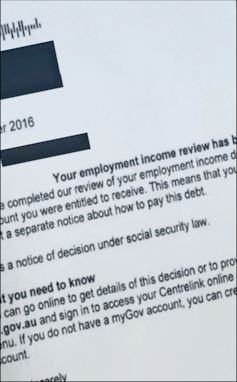Tax Cuts
Coalition Backbenchers Busy Googling How To Polish A Turd
Coalition backbenchers worried about the pathetic polling of their leader, the Dark Lord Peter Dutton, have spent the day googling how to polish a turd in anticipation of shadow Treasurer Angus Taylor challenging for the leadership.
”It was always a risk putting Peter in the top job, but we just had no one else,” said a Coalition Spokesperson. ”We thought he might make a little ground, what with the cost of everything going up but he’s gone backwards.”
”Hopefully the public will have a bit of amnesia and not google for awhile so Angus Taylor can gain some traction.”
When asked why they weren’t focusing on new policies or positive engagement instead of looking at the leader, the Coalition Spokesperson said: ”Negativity and fear worked for Abbott, so why wouldn’t it work for us now.”
”Besides, being negative and spreading hate is like throwing red meat to the base.”
”Now, if you’ll excuse me, I need to go and try and wipe Angus’s social media accounts and spread some vicious rumours about Albo.”
Mark Williamson
@MWChatShow
You can follow The (un)Australian on twitter @TheUnOz or like us on Facebook https://www.facebook.com/theunoz.
We’re also on Patreon: https://www.patreon.com/theunoz
The (un)Australian Live At The Newsagency Recorded live, to purchase click here:
Webbe says Hunt’s measures fatten the rich at poor’s expense – and Labour little better
Independent MP slams latest damaging Tory budget measures and assault on poor, sick and disabled
Leicester East MP Claudia Webbe has accused the Tory government of using Jeremy Hunt’s autumn statement to fatten business at the expense of the poor, of ‘snatching the assessment of illness out of the hands of doctors’ to punish the long-term sick and of doing the exact opposite of what the UK economy needs – and says that Keir Starmer’s Labour is little better in enthusiastically promoting the discredited austerity narrative.
In a statement issued today, Ms Webbe said:
Jeremy Hunt’s Autumn Statement boasted of giving corporations the biggest tax handout in modern British political history, doling out billions to companies – many of whom are already making obscene profits in a cost of greed emergency of soaring bills and food costs.
And he is doing this on the backs of the poor, sick and disabled, with horrendous measures to whip those who are unfit to work into taking jobs their medical experts have said they cannot do – and to do it they will snatch the assessment of illness out of the hands of doctors and have it decided by the government’s agents instead.
The past decade has seen a steep rise in poverty, with fourteen million people below the poverty line, including well over four million children. In Leicester East, four in every ten children were already living in absolute poverty – now the Chancellor says if people do not submit to his new regime to get them back into work, he will cut them off completely from support after six months. The effect of this on my constituents and the poor and sick across the country will be horrific.
This country, since 2010, has seen an appalling rise in the misery imposed on those who were already struggling to get by. More than four in ten disability benefit claimants have attempted suicide under the government’s brutal regime. Suicide has become the leading cause of death in men under fifty. Poor mental health abounds, yet the government has today shown it remains determined to punish and persecute those who cannot work – and indeed that it is determined to deny the reality of life in this country for so many.
In my constituency of Leicester East, we have seen endemic exploitation and poverty wages in our garment industry. I told the Chancellor in response to his Autumn Statement that the unionised manufacturing base of Leicester East has long been diminished – not replaced by technology, innovation and good modern jobs with decent pay, but by fast fashion, sweatshops and unscrupulous employers paying illegally-low wages. All this has been exploited by brands and retailers who are in a race to the bottom for ever-increasing profits while their supply chains fail to pay the minimum wage.
I asked him what action the government will take to regulate and ensure that brands and retailers are held to account for the sustainable outcomes of their products in their supply chains and wage justice for the people that make their goods, and to tackle those British brands and retailers who threaten to seek cheaper labour overseas so they can avoid paying the new minimum wage that the he had just announced. There was no meaningful response.
The government is using tweaks to the minimum wage – which it misnames the living wage – as cover for its handouts to business, but its increases are still very far below the level at which a person working one job could live on. The government claims work is the way out of poverty, but millions who are working are among the poorest.
Mr Hunt claims the government is going for growth, when in fact they are doing the exact opposite of what our economy needs – and hurting millions to do it. Economists recognise that the best way to boost economic growth is to give more money to the poor, because they have to spend it. But yet again the Conservatives are giving more to the rich and to corporations who will put much of it into offshore bank accounts where it does no good. As it is, despite his claims of growth he has had to acknowledge that the Office for Budget Responsibility is downgrading growth forecasts for the next three years.
And it has to be said that the Labour party is largely in agreement with the government it is supposed to oppose. This country needs politicians with the courage to speak the truth that the punishment of the poor to enrich the wealthy is a political choice and not a necessity or even productive. Sadly such politicians are at the moment in very short supply at the moment.
SKWAWKBOX needs your help. The site is provided free of charge but depends on the support of its readers to be viable. If you’d like to help it keep revealing the news as it is and not what the Establishment wants you to hear – and can afford to without hardship – please click here to arrange a one-off or modest monthly donation via PayPal or here to set up a monthly donation via GoCardless (SKWAWKBOX will contact you to confirm the GoCardless amount). Thanks for your solidarity so SKWAWKBOX can keep doing its job.
If you wish to republish this post for non-commercial use, you are welcome to do so – see here for more.
Stand by for the oddly designed Stage 3 tax cut that will send middle earners backwards and give high earners thousands
The Reserve Bank is pushing up interest rates to take money out of our hands.
The first increase in the current round will add about A$65 a month to the cost of paying off a $500,000 mortgage.
The second will add a bit more. If, as the bank’s forecasts assume, there are another four such increases this year, that’s a further $275 a month, and so on.
The point, in the words of the Reserve Bank Governor Philip Lowe, is to “slow the economy, to get things back onto an even keel”.
In a helpful video, the Governor explains that rate rises take money out of mortgagee’s hands directly, make it harder to borrow, make people “feel less happy”, and hit the prices of houses and other assets so people “don’t feel as confident and they don’t spend as much”.
Which is fair enough, if the Governor decides that’s what’s needed.
So why on earth are we scheduled to do the opposite?
As the RBA takes, the government will give
From mid-2024 the government will put an awful lot of money in to people’s hands. Stage 3 of the income tax cuts will cost $15.7 billion in its first year.
By way of comparison, that’s almost as much as the $16.3 billion will be spent on the Pharmaceutical Benefits Scheme that year, and more than the $10.5 billion that will be spent on higher education.
That it is mistimed ought not be a surprise. Stage 3 was legislated in 2018.
The treasurer at the time, back in the year Grant Denyer won the Gold Logie, was Scott Morrison, who said he was legislating Stages 1, 2 and 3 of the tax cuts all at once (and Stage 3 six years ahead of time) in order to provide “certainty”.
A tax switch settled years ahead of time
So uncertain was the treasury about the future back then that it only forecast the economy two years ahead, and produced less reliable and more mechanical “projections” for the following two years, neither of which extended to 2024.
At the time the Reserve Bank had been cutting interest rates (12 times in a row), at the time inflation was 1.9%. It looked as if the economy could do with a bit of a boost, albeit a boost which wouldn’t be delivered for six years.
In saying that things have changed, it’s fair to also acknowledge that things might change back again. We can’t be sure what will be needed in 2024, although we can be a good deal more sure than we were back then.
Backed by Labor
The Stage 3 tax cuts were opposed by Labor at first, but are now backed by Labor treasury spokesman Jim Chalmers after “weighing up a whole range of considerations”.
They are overwhelmingly directed at high earners.
Of the $184.2 billion the parliamentary budget office believes Stage 3 will cost in its first seven years, $137.9 billion is directed to Australians on $120,000 or more.
Part of Stage 3, the part that cuts the rate applying to incomes over $45,000 from 32.5 cents in the dollar to 30 cents, will benefit most taxpayers.
The bigger part extends that low rate all the way up to $200,000, abolishing an entire rung of the tax ladder paid by the highest earners.
For those very high earners, the part of their income that was taxed at 37 cents will be taxed at 30, as will part of the rest that was taxed at 45 cents.
A politician, on a base salary of $211,250, will get a tax cut of $9,075. A registered nurse on $72,235 will get a tax cut of $681 according to calculations prepared by the Australia Institute.
More broadly, a typical middle earner can expect $250 a year, whereas a typical earner in the top fifth can expect $4,230 according to a separate analysis by the parliamentary budget office.
The fate of the middle earner will be made worse by the loss of the $1,000+ middle income tax offset which wasn’t extended in this year’s budget, sending the middle earner backwards.
The typical female earner will go backwards too after the loss of the offset, getting half as much as the typical (higher earning) male, according to the budget office.
A tax switch that’ll send some backwards
The logic is (or was) that middle and higher earners would need big tax cuts to compensate them for bracket creep (which is wage rises pushing them into higher tax brackets), though there’s been a lot less of that than expected.
Were it not for the fact that Labor supports and will implement it, Stage 3 would provide a stark contrast with Labor leader Anthony Albanese’s approach unveiled on Tuesday of asking the Fair Work Commission to lift the minimum wage to compensate for inflation.
Such an increase would go to low wage earners first, and flow through more slowly to award wages. It would give the greatest help to those who needed it the most when they needed it, rather than years in the future when things might be quite different.
Peter Martin, Visiting Fellow, Crawford School of Public Policy, Australian National University
This article is republished from The Conversation under a Creative Commons license. Read the original article.
Peter Martin is economics correspondent for The Age and the Sydney Morning Herald.
He blogs at petermartin.com.au and tweets at @1petermartin.
This pointless $1,080 tax break should have ended years ago – but has become hard to stop

We are about to find out whether we’ll lose a tax break worth up to $1,080 a year.
Treasurer Josh Frydenberg says he hadn’t “made any final decision” on the A$7.8 billion per year low and middle income tax offset ahead of next month’s budget.
He also says it was never intended to be “a permanent feature of the tax system”, which is true enough.
He could have added that it is incredibly poorly designed, introduced for a purpose that no longer exists, extended for a purpose that didn’t make sense, and now can’t be abolished without giving people a “pay cut”.
The low and middle income tax offset (LMITO) was introduced by Scott Morrison in his final budget as treasurer before becoming prime minister in 2018.
Its peculiar design owes much to the government’s experience with Robodebt, and its ill-fated attempt to collect what it believed were overpaid Centrelink benefits.
A flawed tax break, designed in Robodebt’s shadow
Morrison was by then acutely aware of the anguish caused by Robodebt, officially called the online compliance intervention program – which many people forget he introduced in 2016 to ensure “welfare recipients accurately disclose assets and investments”.
Robodebt sent what looked like demands for repayment to Australians who often owed nothing, and ended up costing the government A$1.8 billion in settlements.
LMITO was born of a desire to flatten Australia’s income tax scale and avoid the mistakes of Robodebt.
Australia has five tax rates counting the initial tax rate of zero, which applies to dollars earned up to $18,200. Anything earned above $18,200 up to a threshold gets taxed at 19%, anything beyond the next threshold gets taxed at 32.5%, anything beyond the next at 37%, and anything beyond $180,000 at 45%.
Morrison wanted to remove one of the thresholds, the one that introduced the 37% tax rate, leaving the scale with just three rates above zero: 19%, 32.5% and 45%.
The cost would be enormous, climbing to $24.6 billion per year. By then 44% of the benefit would go to the highest earning Australians on more than $180,000.
Part one of a three-part plan
So Morrison did it in stages. The first would provide “tax relief for middle and low income earners now”. It would be limited to taxpayers earning up to $125,333.
The second, in 2022-23, would push out two of the thresholds: 32.5% would come in at $45,000 instead of $37,000, and 37% would come in at $120,000 instead of $90,000. And the LMITO tax break would go. It wouldn’t be needed, because people getting it would get at least as much from stage two.
The third and final stage, in 2024-25, would flatten the tax scale.
But the problem with directing a benefit to what Morrison called “low and middle earners” was ensuring it went only to them.
What if one of them thought they would earn $100,000, and actually earned $150,000?
They’d have to be sent letters asking them to pay the money back, as with Robodebt.
So Morrison and the treasury decided recipients wouldn’t get the money until they had put in their tax returns, documenting what they made.
The offset would begin in July 2018, but the money wouldn’t hit the recipients’ bank accounts for more than a year, until the second half of 2019 – after their tax had been sorted.
Despite being called the low and middle income tax offset, very low earners would get nothing.
Those on less than $18,200 had no tax to refund. The rest would get up to $530 (later lifted to $1,080) – but only after they had done their tax. And the messy arrangement was only to last for a few years, until the second stage came in.
‘Not permanent’, but hard to stop
In 2020, as part of the government’s COVID response, Treasurer Josh Frydenberg brought forward stage two. At that point, the offset was no longer needed.
But, perhaps in order to claim “the greatest benefits will flow to those on lower incomes”, Frydenberg extended the offset for another year.
In 2021 he extended it for yet another year, this time as a “stimulus measure”, albeit an ineffective one. A stimulus measure that doesn’t hit bank accounts for more than a year is anything but immediate.
Frydenberg’s problem is that now he has given us both the offset and the stage two together, and done it for two years, actually ending the offset will quite rightly be seen as a tax increase or a “pay cut”, directed at low and middle earners. The timing is particularly tricky, with a federal election due weeks after this year’s budget.
Costing the best part of $8 billion per year, delivered when it is not needed, and destined to continue until someone can find a way to stop it, the offset is an awfully constructed annual bonus for all but the highest-earning Australians.
Like the instant asset write off for business, which keeps getting extended because otherwise businesses would complain, there’s a chance the LMITO will stay with us forever.
As ill-fitting as it is, there is an unexpected benefit. The Tax Office says we’ve been getting our returns in early.![]()
Peter Martin, Visiting Fellow, Crawford School of Public Policy, Australian National University
This article is republished from The Conversation under a Creative Commons license. Read the original article.
Peter Martin is economics correspondent for The Age and the Sydney Morning Herald.
He blogs at petermartin.com.au and tweets at @1petermartin.


